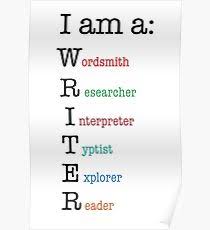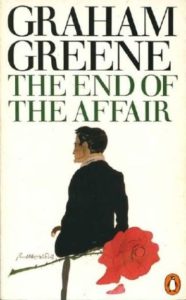The Memoirist’s Dilemma
Every writer struggles with Truth. What is true, what is fact, why is your truth valid rather than someone else’s memory? Navigate the murky waters of life and memory to write your truth.
Every writer struggles with Truth. What is true, what is fact, why is your truth valid rather than someone else’s memory? Navigate the murky waters of life and memory to write your truth.
This is where the rubber meets the road. You will craft memory into story. Let the magic begin.
Beyond Facts to Truth
 In Midcoast Maine we have an abundance of artists and creatives. My small town has 2 world-class museums and fifteen galleries. The first Friday of every month town turns into a party as residents and tourists wander in and out of art spaces. The energy is palpable. Catch up conversations, opinions of a month’s offerings and gossip abound. The spring and fall bring open studios. Arrows point toward destinations out one peninsula after another. It’s a lovely way to spend a day. Seeing the art of others spurs creativity for other mediums. There is only one creative school invisible in this sea of plenty – writers.
In Midcoast Maine we have an abundance of artists and creatives. My small town has 2 world-class museums and fifteen galleries. The first Friday of every month town turns into a party as residents and tourists wander in and out of art spaces. The energy is palpable. Catch up conversations, opinions of a month’s offerings and gossip abound. The spring and fall bring open studios. Arrows point toward destinations out one peninsula after another. It’s a lovely way to spend a day. Seeing the art of others spurs creativity for other mediums. There is only one creative school invisible in this sea of plenty – writers.
This was brought home earlier this week when I went with a writing group to surprise one of its members. The surprise? A Sudden Fiction group, spent months compiling the stories of CJ Quigg (Carol to her friends). An artist Nina Holland designed the cover, Chris McLarty did the design and Pamela Evans served as editor to ensure a professionally finished book. In addition, they paid for the printing out of pocket. Why would writers invest so much time and money on a fellow traveler’s work? It’s simple. These writers have met for years. Each week they write from a prompt and read the result aloud for immediate feedback. Over the years the group has liked and respected Carol’s work. She has been encouraged many times to submit her stories for publication. Carol’s fear subsumed her talent. And like many writers, her stories collected on a hard drive or in a desk drawer. Faced with ill health Carol thought her work if ever published would be done posthumously.
Publication does not a writer make, but there is nothing more thrilling to a writer than to hold a book with your name under the title. We have no galleries. We invite no one to view our workspace. Our community congregates in small, quiet groups in libraries and living rooms. Our work is heard by other writers who we support and who support us. If you meet a writer, don’t ask, “What have you published?” Say, “Tell me about your writing.”
Prepare to be enchanted. How do I know? I’ve worked with writers for decades and have hundreds of unpublished story threads in my head as a legacy of those classes. The above mentioned Sudden Fiction group has continued to meet since learning of the practice in one of my classes. Beautiful writers all, they have for their own reasons not published. That does not negate their ownership of the job title, Writer.

“I Can’t Afford an Editor.”
I hear this claim in every class I teach or writer’s group I attend. The complaint hides two fears: bloody red ink on your manuscript and the idea that a supposed, expert stranger will tell you what to write. The cost is a factor but it is not the factor.

To allay your fears and minimize the cost know that editing is an iterative, not a one and done process. What do I mean?

Presuming that you’ve made edits to the manuscript based on reader feedback, re-read the text with the above-bulleted self-edit questions in mind, performed a second tools scan, and made all changes you can identify you will have a completed third draft and you haven’t spent a cent. Congratulations!
Time to hire an editor.
How do you find the right editor?

See you next post. Happy writing.

Truth is a tricky word. It is especially tricky for writers. Some of you may think truth is only relevant to non-fiction. Some of you may argue truth is fact. Truth in writing is a kaleidoscope or crazy quilt. There as many truths in a book as there are characters. Our job is to write characters or memories (another tricky word) true for each personality, in keeping with the story told. Is it factual? Did a hurricane happen on June 12, 1956, at noon or at 6:00 p.m.? You can look up facts online but the said search will never relate how you felt during that storm or how your character reacted to immediate danger in an intense situation. The fact cannot convey the terror, the cruelty, and wonder of the act. It does not define a family’s reactions as their home is destroyed by a fickle wind while their neighbor’s house escapes damage. It cannot convey the grateful sense of survival when life is measured as greater than tangible goods.

Truth plays another role in writing. As we write we may decide to include topics that make us uncomfortable. We may worry about what others will think when they read the material or we fret that we are going too or not far enough. The concerns can be evidenced by our physical reactions: a headache, tightness in the chest or a queasy stomach as we write. Often we avoid topics that cause us to feel vulnerable.
Vulnerability is where truth in writing resides. When you have a physical reaction to your work, meditate on the reaction. What is at the root of the fear, the tension, the sense of dis-ease? When you write a section that challenges your intellectual ideas of truth, it doesn’t mean that the words are emotionally invalid. Truth in writing is more complex than facts. Truth in writing may not be equivalent to truth in your daily life, but it can be true for your character, the plot and the outcome of your writing.
Remember your draft is about creation. A draft is a free fall. The time to let go. The time to trust you, the writer. Ignore the voice that urges you to cut and refine as you go. Simultaneous edits have a vampiric effect. The corpse appears alive but it has no lifeblood.
Surprise yourself by reviewing a full draft. Allow yourself to be vulnerable and create your strongest work. This is your free pass to get all of the truths, feelings, and reactions of your story on the page without internal or external critics.

I have the good fortune to facilitate a monthly book discussion at a local library. The format consists of five titles related to a particular topic. The current topic Destruction and Redemption include the titles:
Emma Bovary by Gustave Flaubert 
The End of the Affair by Graham Greene 
Lolita by Vladimir Nabokov 
The French Lieutenant’s Woman by John Fowles 
Morgan’s Passing by Anne Tyler 
As a literature major, it is not the first time I have encountered these titles. And, I admit that I was not thrilled at the prospect of rereading some of them. I’m glad I did. It has made me a more careful writer and attuned to the idea that stories have seasons as does our life.
What have I learned? Readers and writers approach stories in the same way. What way? We come to the page based on the life parameters we have experienced at the point of writing or reading a book. A book that bored us twenty might be insightful or moving a decade later.
The experience is reminiscent of the following Mark Twain quote:

Sometimes you surprise yourself with what you have learned. The certainty of a first experience becomes tainted or enhanced by experience. It does not remain static. You might have a pleasant surprise if you revisit a book you previously disliked. Sad to say you may reread a title that you loved and find it no longer moves you. Regardless keep reading.
 Writing is hard. Go to any social media site and you’ll see posts from writers who declare that they want to write but don’t. Others wait for divine inspiration and express frustration at their lack of ideas. Still more, state for public consumption that what they write is drek.
Writing is hard. Go to any social media site and you’ll see posts from writers who declare that they want to write but don’t. Others wait for divine inspiration and express frustration at their lack of ideas. Still more, state for public consumption that what they write is drek.
If as you sit at your writing place and start from the position of,”I have nothing to say” you have self-rejected. If as you take your morning walk or drive and your internal editor knocks down ideas that pop at random. You have self-rejected.
All writers live under the delusion that every word they write must be both brilliant and perfect. Many forget that writing is a process, a practice. Self-rejection interrupts both. If every sentence, paragraph or page is rejected you may end up with a few finely honed, technically precise pages but in the process, you will remove the heart, the truth, the vulnerability of a readable story.
First, we must write. Think of first draft words as lumps of coal. Miners know that one found lump of coal indicates that there must be others. So many that perhaps a little digging will bring up enough coal for warmth and power. They also know that coal can hide diamonds or other veins of ore. Diamonds are accessed by rubbing away the coal to get to the sparkle.
Fill your first draft with words that are misshapen, string them together until you have pages. Allow the pages to see daylight. In the sun look for the hints of sparkle. Allow the pages to age before you read a completed manuscript. Surprise your self. You will find that you have mined more than coal.
Edit and polish until you find the true vein of your work.

Write to Finish is crafted for novelists and memoirists who struggle to overcome hurdles and blocks on the road to completion. We will work to enhance detail, character, and place for a solid draft and create a project plan to get to the finish line. The class includes but is not limited to the review process, editing, readers, and submission. Get the tools to bring your book to fruition. The class is limited to 8

Write to Finish is crafted for novelists and memoirists who struggle to overcome hurdles and blocks on the road to completion. We will work to enhance detail, character, and place for a solid draft and create a project plan to get to the finish line. The class includes but is not limited to the review process, editing, readers, and submission. Get the tools to bring your book to fruition. The class is limited to 8